Swadheen Shukla
EJ
Overview of the Ninth Dialog System Technology Challenge: DSTC9
Nov 12, 2020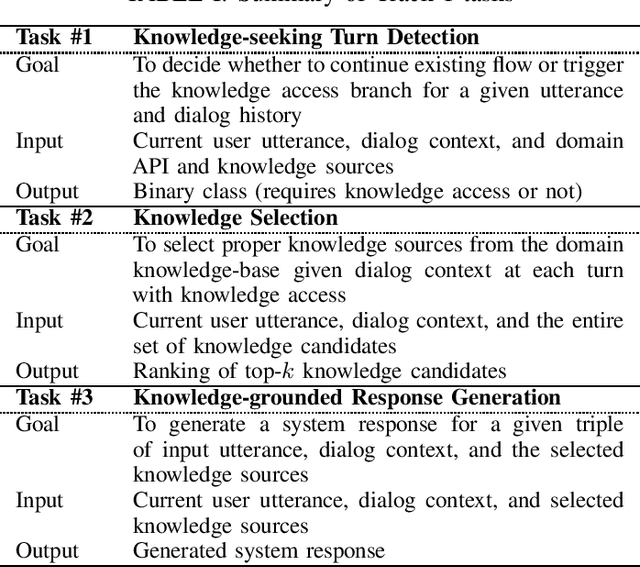


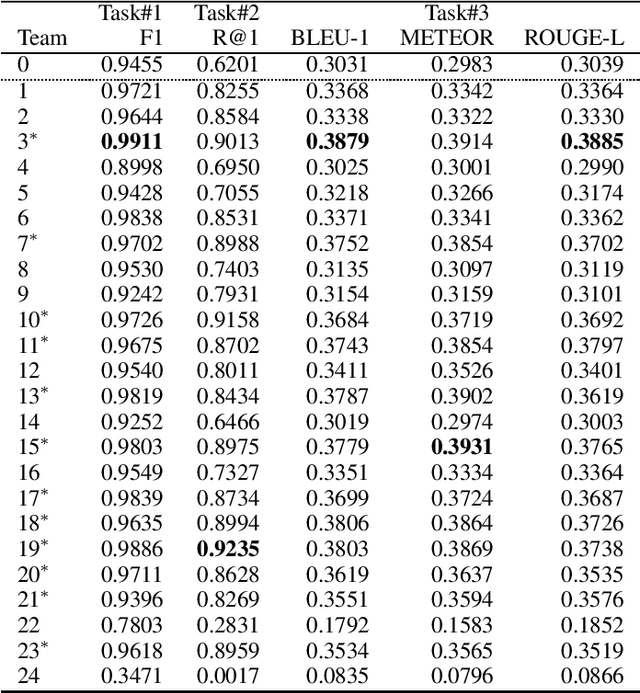
Abstract:This paper introduces the Ninth Dialog System Technology Challenge (DSTC-9). This edition of the DSTC focuses on applying end-to-end dialog technologies for four distinct tasks in dialog systems, namely, 1. Task-oriented dialog Modeling with unstructured knowledge access, 2. Multi-domain task-oriented dialog, 3. Interactive evaluation of dialog, and 4. Situated interactive multi-modal dialog. This paper describes the task definition, provided datasets, baselines and evaluation set-up for each track. We also summarize the results of the submitted systems to highlight the overall trends of the state-of-the-art technologies for the tasks.
Conversation Learner -- A Machine Teaching Tool for Building Dialog Managers for Task-Oriented Dialog Systems
May 01, 2020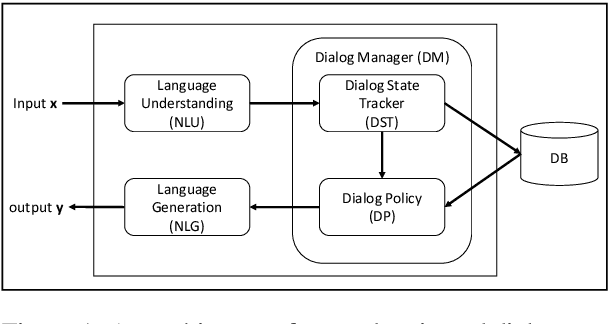
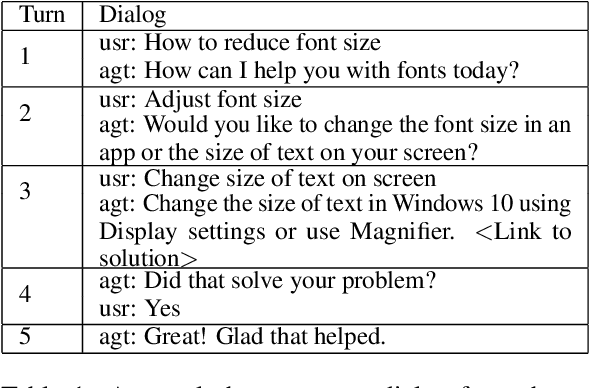

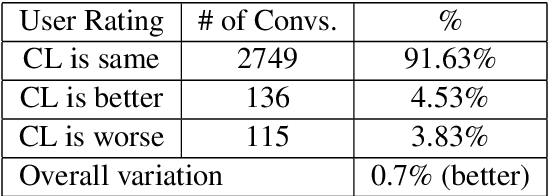
Abstract:Traditionally, industry solutions for building a task-oriented dialog system have relied on helping dialog authors define rule-based dialog managers, represented as dialog flows. While dialog flows are intuitively interpretable and good for simple scenarios, they fall short of performance in terms of the flexibility needed to handle complex dialogs. On the other hand, purely machine-learned models can handle complex dialogs, but they are considered to be black boxes and require large amounts of training data. In this demonstration, we showcase Conversation Learner, a machine teaching tool for building dialog managers. It combines the best of both approaches by enabling dialog authors to create a dialog flow using familiar tools, converting the dialog flow into a parametric model (e.g., neural networks), and allowing dialog authors to improve the dialog manager (i.e., the parametric model) over time by leveraging user-system dialog logs as training data through a machine teaching interface.
 Add to Chrome
Add to Chrome Add to Firefox
Add to Firefox Add to Edge
Add to Edge